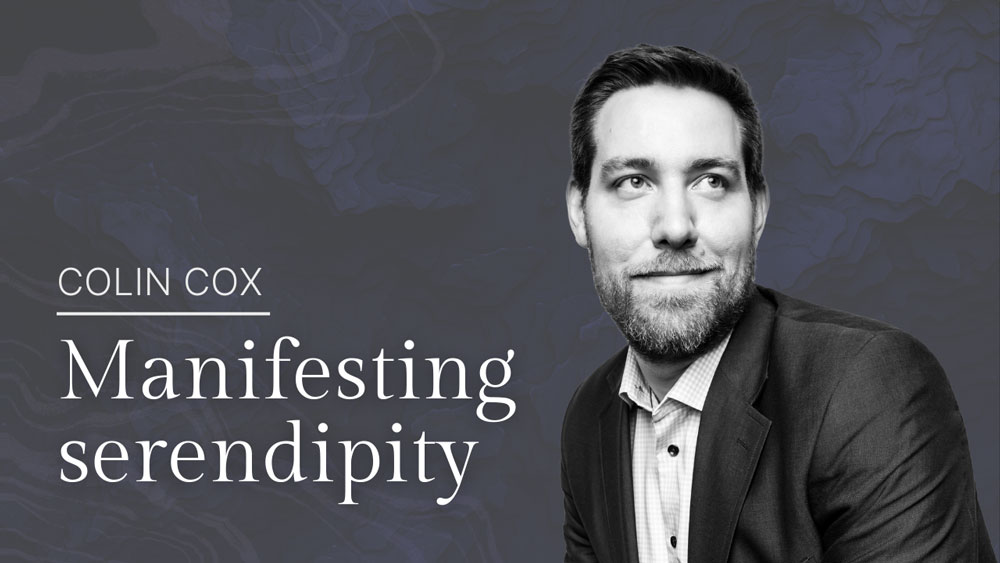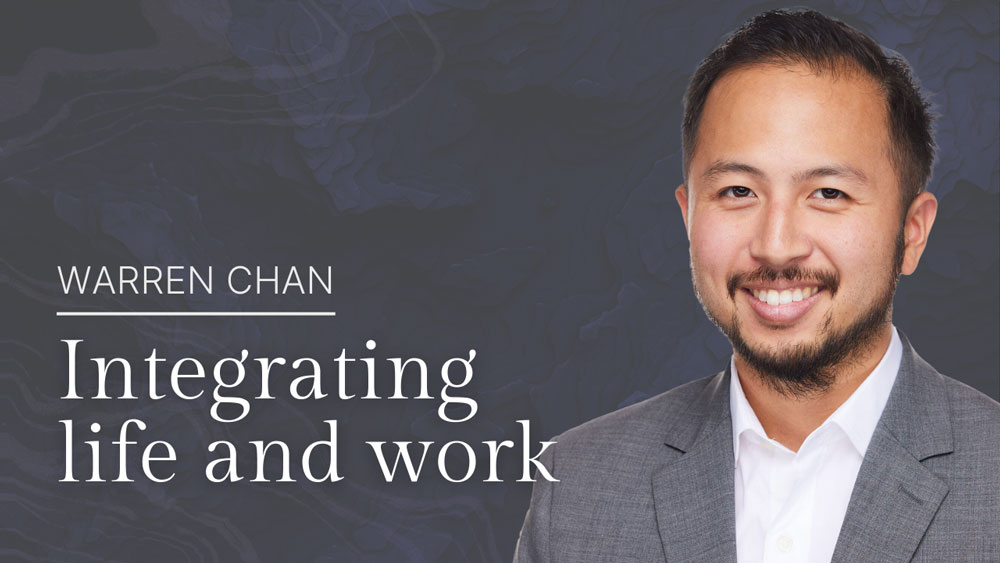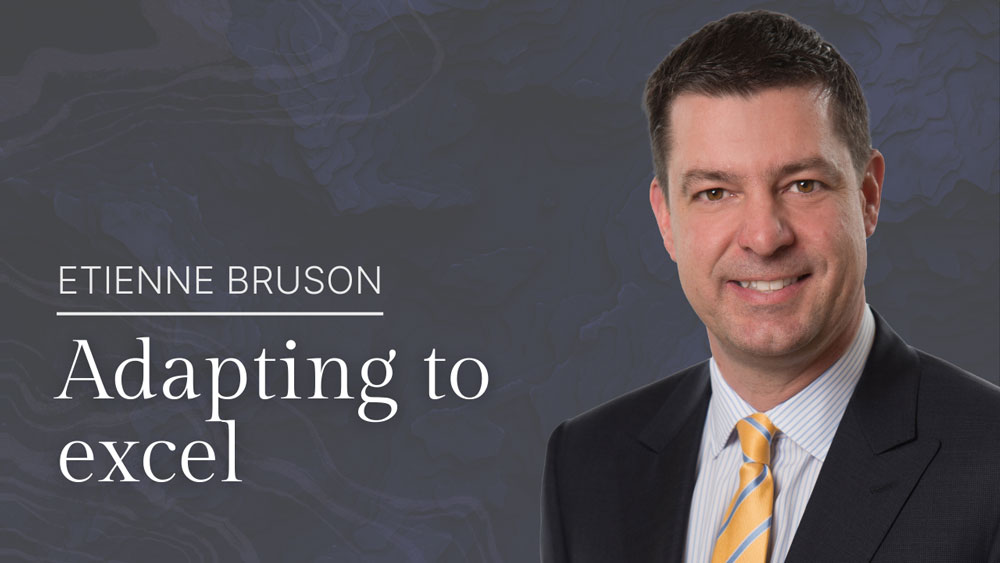Ayusha Mahajan
7
min read
Manifesting Serendipity
Colin Cox
Founder | Cox Consulting
Key highlights
Colin Cox was extremely lucky with his professional start. But he was also skilled, passionate, and fearless in taking opportunities. From Electronic Arts at age 15 to CEO/Executive coaching in the present, his unconventional path is filled with learning and self-improvement.
Colin achieves tremendous team success by practicing unconventional people-first leadership. He designs an environment that prioritizes his team's growth and development, fostering a sense of ownership, engagement, and empowerment.
A relentless strategist, Colin plans ahead when it comes to his personal and professional life. To him, success is not the same as fulfillment—and should never replace it. His north star for a happier life is prioritizing loving what he does every day rather than solely chasing external markers of success.
Skill and Chance
Colin Cox’s exciting and unusual professional journey began with dropping out of school in grade 11. When we think of success, we often picture a clear and intentional path full of strategic decision-making toward an end goal. However, the line between where Colin started his career and where he is now is more of a squiggle. And each turn involved being prepared for what came next, no matter what.
Even though he was a good student in school, Colin wasn’t learning the things he was interested in. He grew bored and frustrated and eventually dropped out with no plans for the future. After being directed to a troubled teens program by his mother to learn soft skills, Colin put “video games” under the hobbies section of his application. Through a fortuitous combination of being in the right place at the right time and possessing the necessary skills, Colin embarked on a 5-week work program at Electronic Arts (EA), which turned into a 7-year journey. Two years after working at EA, Colin was promoted to team lead at age 17. His success can be attributed to not only the circumstances that opened doors for him but also his passion and drive, which enabled him to excel. Now he is a CEO/executive coach who directs people towards their purpose in addition to being a CEO peer group chair, a leadership expert, and a contented individual.
Because of the short gap between school and work, and his gargantuan professional growth, Colin doesn’t regret his decision to drop out of school as a teenager.
“I looked at my peers at the time, and I saw how most people were miserable in their jobs. And even today, you look at the percentage of people engaged in the workplace; it's abysmal, right? But I noticed that, and it made me so grateful that at such a young age, I found a place I loved, desperately loved to work at, and I always felt grateful for that.”
The truth is, there is no right way to success. But there is always a way to be prepared and embrace it humbly.
People-First Leadership
Colin worked in tech and video games for two and a half decades, but his passion was leadership and helping people grow. The conventional view of leadership is hierarchical, with the leader at the front of the pack, driving the team towards a goal. But Colin's leadership style challenges that idea. He enforces the principle that leadership is less about the "hero" and their objective and more about the people’s journey in achieving that goal. Specifically, the valuable things they pick up along the way.
"A lot of leaders will approach every situation leading people with, 'I'm the hero, I have problems, and these people have to be my guides and support me.' But if you flip that on its head and see yourself as the guide, you see the people that you're leading as the heroes, and they have hopes, dreams, problems, and opportunities. How can you position yourself to help them do that?"
Getting team members fired up, encouraging, and rewarding them after they hit milestones shows that the leaders care about their progress and not merely the result. This can also be considered authentic leadership.
Colin also practices being a better leader by thinking about ways he can provide the best value to other people. Despite his range of experience, he still experienced impostor syndrome when offered a position as COO at Demonware, which was a few milestones ahead of where he was at the time. And again, when he was invited to the McKay CEO Forums.
“I went into a group with a lot of imposter syndrome, and almost from the first meeting, my imposter syndrome washed away. Because with all the experience I've had from Rackspace, EA, Demonware, Activision, the amount that I was able to bring to these other peers that I really looked up to made me feel like a peer immediately.”
Having a mountain of valuable hard-earned wisdom to offer elevated Colin’s confidence. His previous experience spoke for itself, and the hours spent bettering himself and his skills proved useful. Colin subscribes to the notion of having a goal and, with it—clear intent as the essence of strategy.
Purpose in Guidance
Colin coaches CEOs and executives in his primary role but also makes time for leaders at other levels. Because he likes to make sure he’s making the most of his and his client’s time and offering the most that he can, Colin ensures his clients are looking for the kind of support he can provide and are seeking help for organic reasons.
“When people come to it themselves, that's when it's the best because they're committed, they're fired up.”
Ideally, receiving coaching is a strategic stepping stone toward his client's end goals. The complex interconnectedness of civilized life can often make you feel locked into your current state and fear change. The “golden handcuffs” that one of Colin’s clients was in made him detest his work and affected his home life. No “eureka!” type answer would solve their problems. Colin asked them questions, nudged them out of their comfort zone, and catalyzed the idea of change. The result? The client changed roles and organizations and even moved to a different state in the US with their family, finally finding the right life and achieving a lifelong dream. All they needed was a nudge.
Sometimes, asking for help in pursuit of a dream can make the difference between handcuffs and freedom, as we tend to be the ones to hold ourselves back the most. And as a leader, recognizing the importance of that help is invaluable.
Intentional and Emergent Strategy
Colin's career path hasn't been defined solely by strategic choices or fortunate events. He describes his trajectory as a blend of careful planning and fortunate serendipity. It began with his unexpected departure from school to join Electronic Arts—a stint that lasted an impressive 7 years, followed by another 19 in the greater video game and tech industry. The culmination of his journey was a deliberate pivot from corporate leadership to the realm of CEO and executive coaching.
Colin’s seminal moment was when he took the CliftonStrengths Assessment, which is a 177-question test that can be taken to learn about the taker’s strengths and unique powers with personalized reports to maximize their potential. The first time Colin took it, he learned that being a developer was one of his top strengths, and he could help people grow.
“And I thought, what if I intentionally designed a life and a career around really doing that? Not just doing it as part of my role as a leader, as a COO, but what if I was an executive coach? So that helped influence me.”
The strategic planning that went around creating that career for himself is why Colin now loves what he does.
Making the Most of Life
Colin doesn’t skirt around the idea of efficiently utilizing time. For him, having a clear goal is essential to know your direction and what steps you want to take to achieve it. A learner at heart, Colin invested in himself by doing his MBA, building his consulting practice, and learning by doing. His productivity and self-improvement lie in knowing what he wants and how he plans on having it within his reach.
“I think, from my experience, it starts with having clarity of what's important to you. And my observation is most people don't have that. So, if you don't know what's important to you—if you don't know what your future is and what you're striving for, even if that's not where you end up, how do you make priority choices?”
Having his priorities sorted in his mind already, Colin keeps a list of media recommendations called "Someday Maybe" which allows guilt-free disregard until there is an opportunity to explore one of its items. Having three kids and professional responsibilities requires time management, and since Colin’s life is always in motion, he has to set his own boundaries.
With remote and hybrid-remote work becoming the norm, the trade-off for having spatial flexibility is setting temporal boundaries. According to Colin, finding the right work culture for your productivity is essential. Some organizations thrive with relentless work, and some allow more work-life fulfillment. Achieving goals can be intoxicating, but Colin advises being careful with success, as it can never stand in for fulfillment. To him, success and fulfillment are adjacent but separate entities. While success can often be perceived as an endless stream of tangible achievements, the fulfillment and mindful appreciation of your accomplishments truly fuel your work.
“I'm super curious about fulfillment, which I define as loving what you do every day, versus success, which is getting that dopamine hit in whatever form. I'm not saying don't chase success—do it, but don't overlook fulfillment and loving what you do every day because that’s what I found to be super grounding. That’s what led me to happiness.”
Conclusion
Colin’s professional journey, from Electronic Arts to executive and CEO coaching, perfectly illustrates how careers can weave their own paths, often finding luck in the readiness to seize unforeseen opportunities. In his approach of acting as a guide rather than a hero, Colin highlights the power of people-first leadership and underscores the value of empowering those around him. Through strategic intention and embracing serendipity, Colin has crafted a path that harmonizes with his innate strengths and purpose. Ultimately, his narrative serves as a compelling beacon, inspiring us all to delve into our unique journeys and seek professional fulfillment through intentionality, adaptability, and a commitment to growth.



